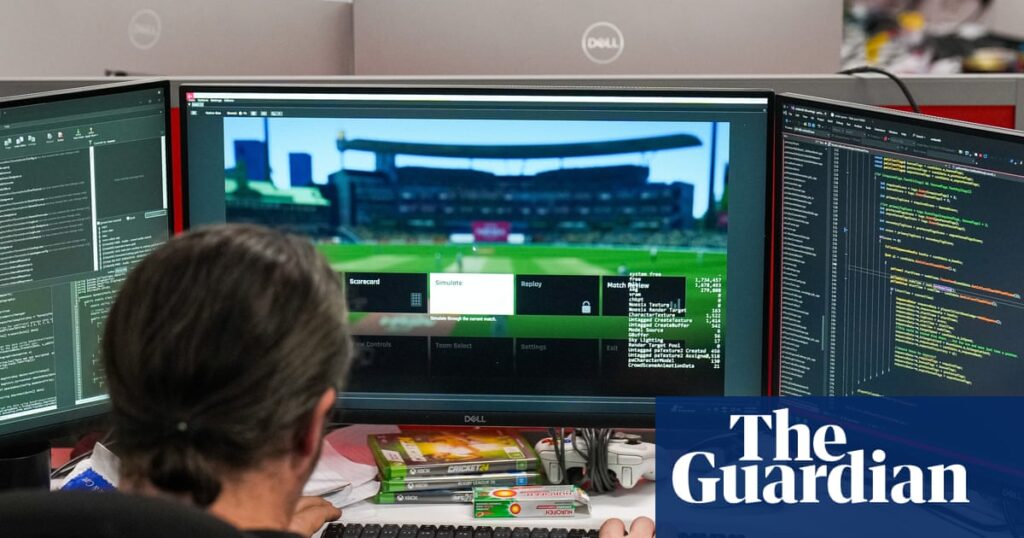
The perception that video games are not “serious things” is outdated, argues Ross Symons, CEO of Big Ant Studios. He highlights the role games played during the COVID-19 pandemic in helping people connect and maintain social bonds. Symons recalls how, in 2010, then-opposition leader Tony Abbott dismissed the national broadband network as merely a tool for “internet-based television, video entertainment and gaming.” However, this dismissive attitude towards the video game industry has not withstood the test of time.
In 2022, Australians spent a staggering $3.8 billion on video games, according to the Interactive Games and Entertainment Association (IGEA). While the industry in Australia is still small compared to gaming giants like Canada, it is experiencing significant growth. In 2023, the federal government introduced the digital games tax offset (DGTO), a 30% refundable income tax offset for developers who create or port games in Australia, provided they incur at least $500,000 in qualifying local development expenditure. This initiative is capped at $20 million per company.
Industry Growth and Government Support
Ron Curry, CEO of IGEA, notes that the number of employees in the Australian gaming industry has nearly doubled since 2020-21, reaching 2,465 full-time workers. The sector generated $339.1 million in revenue during the 2023-24 financial year. “That shows an almost 100% increase in employment and revenue has grown about 85%,” Curry states.
“The DGTO pulled a number of levers. Australia was a very expensive place to make games – we were the only developed country without any sort of rebate or offset. So it fixed that, so it brought us back in line with other developed countries.” – Ron Curry, CEO of IGEA
The DGTO has signaled to international developers that the Australian government is confident in the industry, bolstered by state and territory grants. This has created a “healthy environment to operate in,” attracting interest from investors, game publishers, and prospective employees.
Interstate Competition and International Interest
Serge Zebian, a partner at Playwright Consulting, notes that the offset has made a significant difference for companies hiring in Australia, with international studios increasingly looking to the country for development opportunities. Zebian highlights the growing competition between states, with Queensland offering a 15% rebate on top of the federal government’s 30%, and Victoria providing a rebate of up to 15%.
French developer Gameloft, which opened its Brisbane studio in 2014, has been a beneficiary of these incentives. The studio recently revived the iconic character Carmen Sandiego across multiple platforms, a project that studio head Manea Castet describes as a “fun twist” on a childhood favorite.
“Everywhere in the world, it’s shifting … there is still a lot of money to be [made in] the video game industry, so having Australia pushing for that now, I think it’s super smart.” – Manea Castet, Studio Head, Gameloft Brisbane
Challenges and Future Prospects
Despite the positive developments, the industry faces challenges. Big Ant Studios encountered issues with their Rugby League 26 game, which was released with bugs due to tight deadlines and last-minute changes. Symons explains that they had to make 1,200 changes in the week before release, primarily to remove gambling and alcohol sponsorships from the game.
“We were forced to make a hell of a lot of change in the game, 1,200 changes in the week before we release[d], and these changes were to do with betting sponsors, alcohol sponsors and all sorts.” – Ross Symons, CEO of Big Ant Studios
The DGTO has allowed Big Ant Studios to expand from 50 to 147 employees, making them more competitive globally. However, the tight job market, with skills in game development being sought by other industries like artificial intelligence, poses a challenge. Curry emphasizes the importance of attracting senior talent to Australia to further accelerate industry growth.
“We know when you bring senior talent into a country, they act as an accelerator for those people that they’re training.” – Ron Curry, CEO of IGEA
As Australia continues to develop its video game industry, the combination of government support and international interest positions it for further growth. However, addressing challenges such as talent acquisition and market competition will be crucial in maintaining this momentum.







